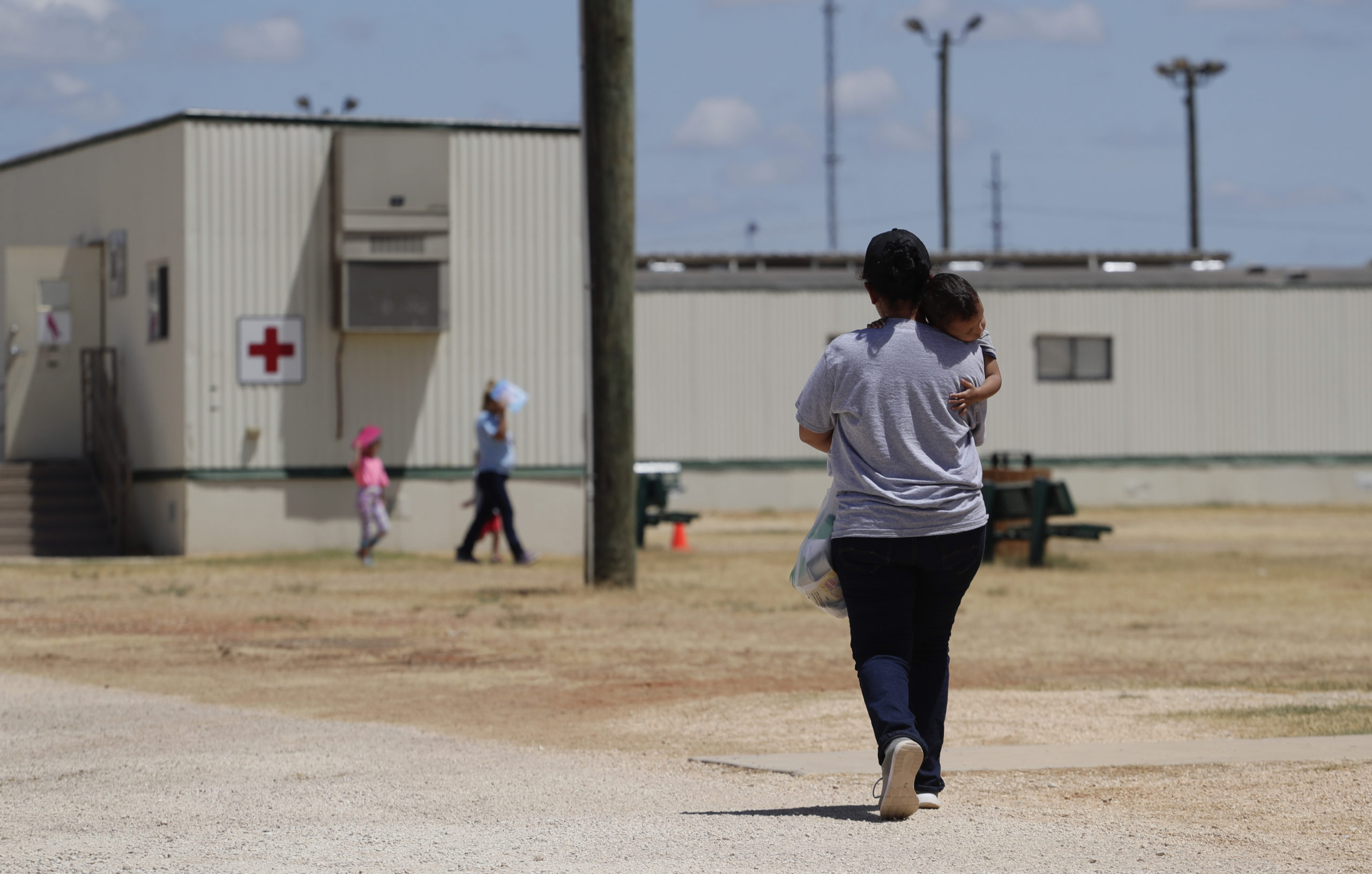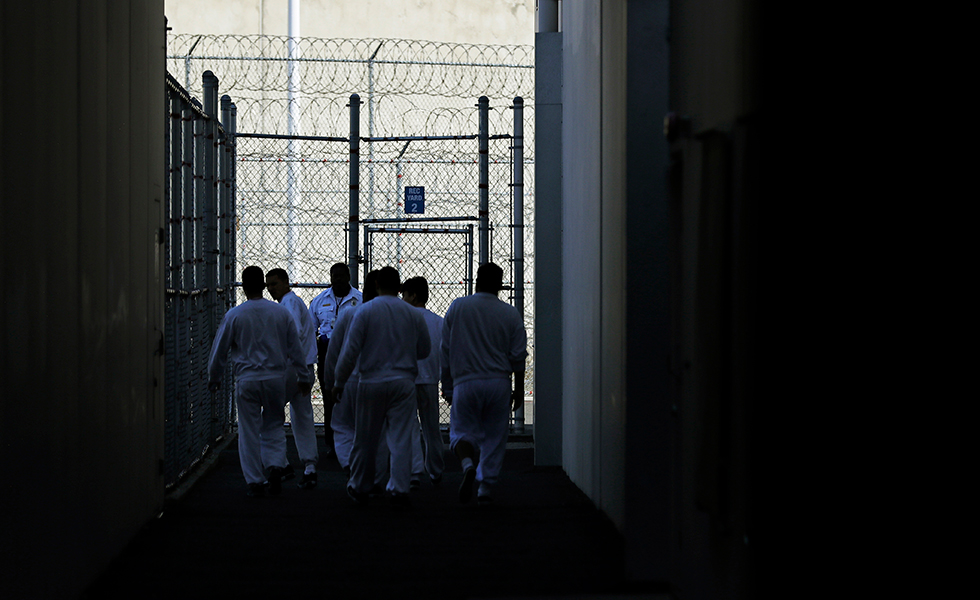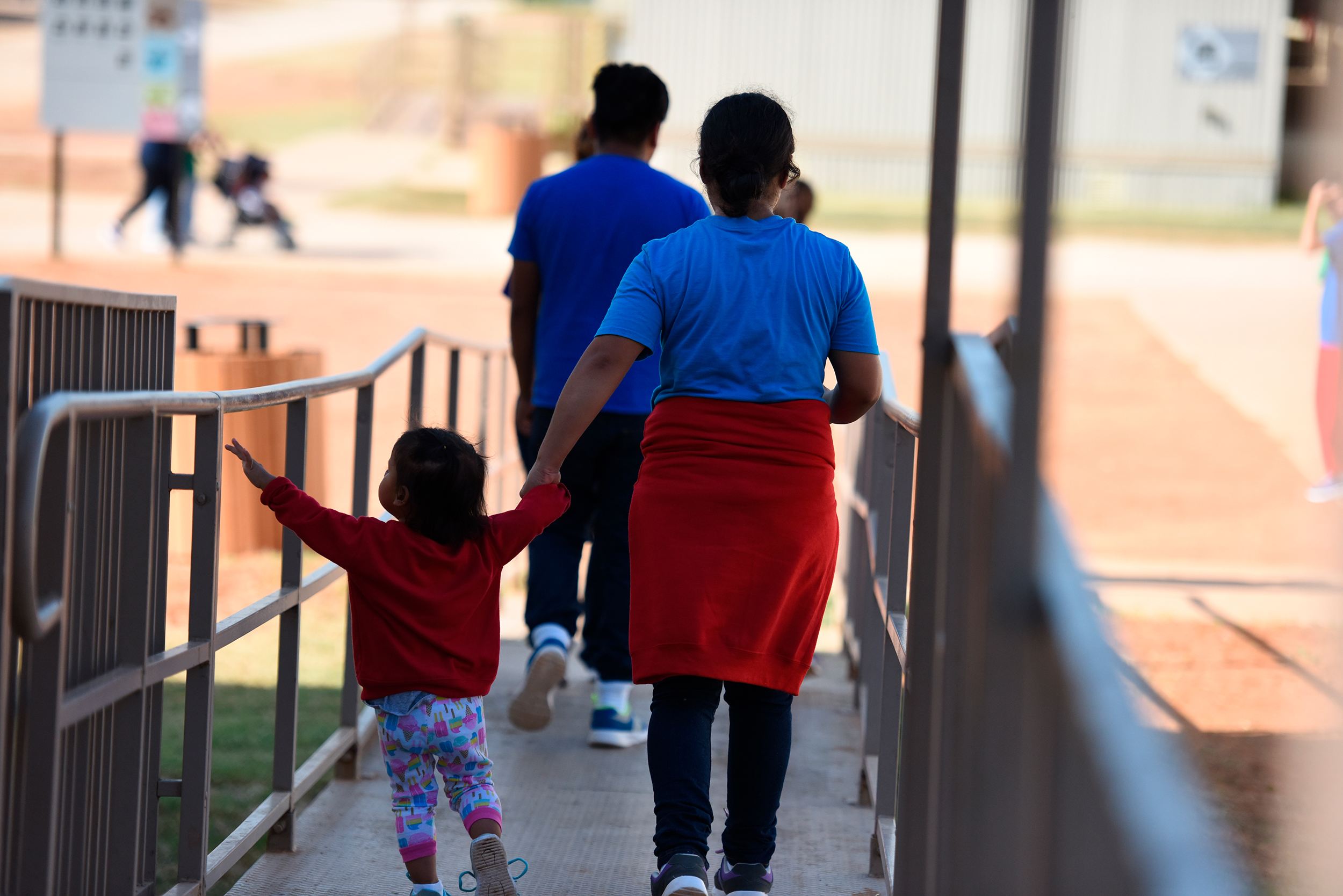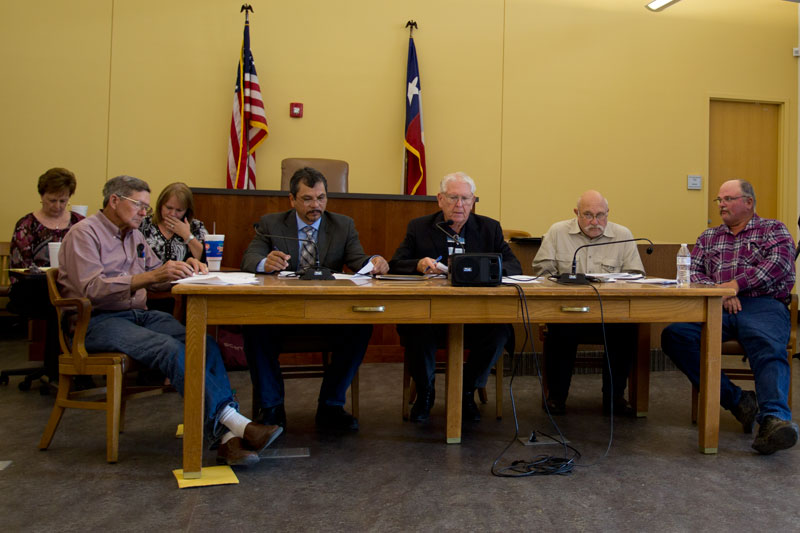
Karnes County Considers its Future in the Family Detention Business

On Thursday afternoon, the Karnes County Commissioners Court, which normally meets before a handful of citizens, moved its meeting to an overflow room. The meeting was unusually well-attended because the county’s residents need to decide—and decide fast—whether their county will be home to one of the nation’s largest family detention centers.
Karnes City, an hour southeast of San Antonio, already hosts the Karnes County Residential Center, an immigrant detention facility run by the private prison corporation GEO Group, Inc., with a capacity of 532 beds. Until July, the detention center was an all-male facility, but after this summer’s influx of asylum-seeking Central American women and children at the border, it’s been converted into a detention center for families. In the next year, GEO wants to expand the facility to more than 1,100 beds.
Karnes County has a population of just 15,081 people. For decades, its residents have eked out a living with dry-land farming or work at the county’s two prisons. GEO Group acquired the Karnes facility in the late 90s. At the time, county leaders were desperate for the jobs. But now Karnes is at the center of the Eagle Ford Shale play, and a booming fracking economy that’s made millionaires of local landowners. These days, a resident can make $100,000 a year working in the oil fields. Suddenly Karnes County isn’t so desperate for jobs; that makes the Karnes facility expansion, from 532 to more than 1,100 beds, a harder sell for GEO Group.
But this isn’t GEO’s first rodeo. GEO Group is a multi-billion dollar global corporation publicly traded on the stock market. In the glossy prospectus it provides shareholders, the company refers to the inmates it houses as “clients.” At the community forum Thursday, dozens of local residents in white GEO polo shirts with GEO badges hanging from their necks filed into the overflow room. County Judge William Long, who repeatedly reminded the room he’d only been judge for two weeks, seemed flustered as the room filled to capacity. Outside the courthouse annex, Sheriff Dwayne Villanueva had stationed extra deputies. The previous meeting on the expansion had been heated, with people outside protesting against family detention.
This time, GEO made sure to fill the room with supporters. One by one they stood to testify in favor of the expansion as the judge, county commissioners, a handful of residents and outsiders and a phalanx of TV news cameras looked on. A young blond woman named Laura Guerrero strode up to the lectern to testify. “I’ve worked at the facility for 17 years as a client administrator,” she said. “I have three children in school and GEO allows me to have a career and be a mother. With the expansion there will be more jobs and it’s going to be better for our community, and so I’m for the expansion.” The room erupted in applause.
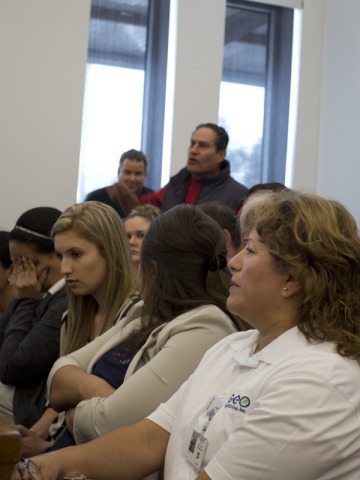
An older man named Bill Carr, in a blue windbreaker with the GEO logo, testified next. “We have in excess of 100 employees in this community,” he said. “We pump hundreds of thousands of dollars into the economy. And we’re going to be here 30 years from now. Eagle Ford Shale will not be here. That’s all I have to say.”
An hour into the community forum, there was little mention of the women and children locked up at Karnes until Marisa Bono, an attorney from the Mexican American Legal Defense and Educational Fund, stood to speak. MALDEF and other legal nonprofits are representing some of the people inside the facility— women who have alleged sexual abuse from guards, and MALDEF and others also filed a complaint with GEO Group and Immigration and Customs Enforcement claiming the facility provided inadequate food, health and mental services, and employed questionable disciplinary tactics.
“This is a relatively new phenomenon in the U.S. right now,” she said. “There’s only three of these family detention facilities in the country. Artesia [in New Mexico] is going to be closed because there are lawsuits against it because of complaints of abuse. … Some people will be shipped here to Karnes or to Dilley. There’s a recurring pattern,” she said. “Think about Hutto [T. Don Hutto Family Residential Center]. It was sued by a number of organizations because of alleged abuses, and the county was the defendant in those lawsuits, and they closed down the facility. Broken contracts and the county left holding the bag. … It’s important to identify what happened in the past and ensure it doesn’t happen here.”
People in the crowd were already mumbling about the outside agitators from San Antonio when Jonathan Ryan, executive director of the nonprofit RAICES, spoke up. “This is an important question for the future of your community,” he said. “Do you want people to Google ‘Karnes’ and the first thing that comes up is family detention?”
A woman sitting nearby who had been heartily clapping for the various GEO employees that testified broke into applause. She seemed perfectly happy with the idea.
In the region, GEO Group already has competition from Corrections Corporation of America, which is building another family detention facility in the South Texas town of Dilley, which will have 2,400 beds.
Before this summer there was only one immigrant family detention facility in the nation—the Berks Family Residential Center in Pennsylvania, which holds up to 85 people. But Texas is no stranger to family detention. The T. Don Hutto jail, outside Austin, housed families for years in deplorable conditions. Children and parents wore prison uniforms and were locked in cells. A lawsuit filed in 2007 by the American Civil Liberties Union and University of Texas Law School’s Immigration Clinic finally put an end to the disturbing experiment.
But in the last year the U.S. government has detained more than 68,000 family members at the border—a 361 percent increase—and it has reacted predictably, locking them up in private prisons. Now Texas is again at the crux of some of the thorniest questions for our society: Should immigrant families be housed in jails while they await their immigration proceedings, for months or even years? Should private corporations like GEO Group and Corrections Corporation of America be allowed to profit off a vulnerable and marginalized population such as women and children seeking political asylum?
After two hours, the county judge announced that it was time to move on to the next item—a new HVAC system for the county annex. Everyone filed out into the hallway, leaving just a handful of people behind for the remaining business. Afterward, the County Attorney Herb Hancock told me it would be difficult for the county to deny GEO Group the expansion. A 2006 contract with GEO left the county open to a breach of contract lawsuit if it didn’t agree to the expansion.
In a roundabout way, Hancock—who emphasized he’d only been county attorney for two years, and wasn’t involved in the 2006 negotiations—said Karnes County had been a very different place in 2006, before the Eagle Ford Shale boom, and been desperate for economic development.
“That’s no longer an issue for Karnes County, thank God,” Hancock said. But GEO will be an issue for the county for a long time to come. “We are bound to the agreement. But that’s just my opinion in my short 50 years in practice.”
